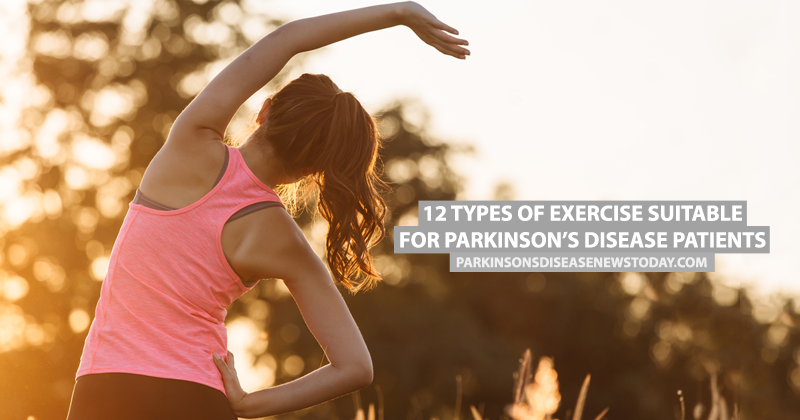12 Types of Exercise Suitable for Parkinson’s Disease Patients
Written by |

If you have Parkinson’s disease, there are a lot of health benefits that come along with exercise. Staying active can help you sleep, strengthen your muscles and joints, reduce stress and depression, and improve posture, balance, and gait.
But what sort of exercise should you do? The types of exercise you choose will depend, to some degree, on the severity of your Parkinson’s disease and your overall health. According to the Parkinson’s Disease Clinic and Research Center at the University of California, the exercises should be varied and incorporate changing directions through unplanned movement, cardiovascular exercise, balance, strength training and rhythmical exercises.
How does Parkinson’s disease affect the brain?
Unplanned and Random Movement
The exercises listed require the person to change tempo and direction regularly. These will challenge a person mentally as well as physically as they require concentration to perform.
- Walking, hiking or jogging
- Racket sports such as badminton, table tennis, squash
- Yoga or Tai Chi
- Outdoor cycling
- Dancing
- Aerobic classes
- Marching with swinging arms
- Swimming in different strokes
Planned and Repeated Movement
These exercises are generally repeated movements that require balance. They can be performed while doing something that challenges a person mentally, such as watching a quiz show or the news, throwing and catching balls, singing, or problem-solving.
- Cycling on a static bike
- Weightlifting using light weights
- Swimming laps in the same stroke
- Slow walking on a treadmill
11 facts about Parkinson’s disease you might not have heard
Parkinson’s News Today is strictly a news and information website about the disease. It does not provide medical advice, diagnosis or treatment. This content is not intended to be a substitute for professional medical advice, diagnosis, or treatment. Always seek the advice of your physician or another qualified health provider with any questions you may have regarding a medical condition. Never disregard professional medical advice or delay in seeking it because of something you have read on this website.


